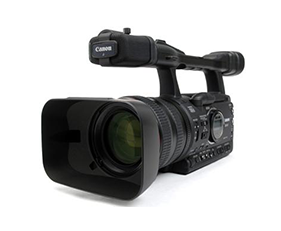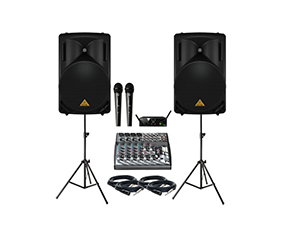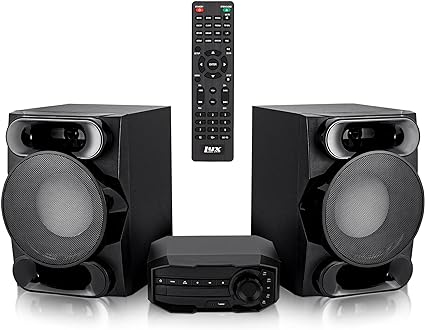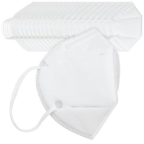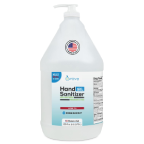PORTABLE HARD DRIVES… THE LOW DOWN ON BACK-UP.
 Scenario # 1: You’ve loaded every digital picture you’ve ever taken on your computer. Years of priceless vacation, birthday party and holiday photos are all located in one convenient place. Convenient that is, as long as your hard drive doesn’t fail.
Scenario # 1: You’ve loaded every digital picture you’ve ever taken on your computer. Years of priceless vacation, birthday party and holiday photos are all located in one convenient place. Convenient that is, as long as your hard drive doesn’t fail.
Scenario # 2: Your computer keeps telling you there’s no more room on your hard drive. You purge files and trash what you think you don’t need. You waste valuable time ‘shuffling’ files around, since you can’t afford a new computer.
Scenario # 3: You’ve got thousands of songs sitting on your notebook. All your favorites are there, your play lists are organized, and you’ve got control of your compulsion to buy even more. You’re rushing off to school one morning and you drop your laptop down the hallway stairs rendering it inoperable!
Scenario # 4: You’ve spent weeks on a project for a new client. You’ve got a killer Power Point presentation complete with audio and video clips, spreadsheets, and hush hush manufacturing information. Someone steals your laptop.
By now, you’re probably getting the picture. If you don’t have a back-up hard drive for your important, irreplaceable, or precious files you could be robbed of valuable time, money, and memories. Fortunately, there’s no lack of solution options for someone looking to buy a portable or desktop back-up hard drive. Yet, it’s that very fact that makes the purchase downright confusing.
Here are the basics of what to look for:
 A quality hard drive: You want to be sure that the drive you’re putting your valuable back-up files onto is a reliable drive from a reputable company. Stay away from ‘inexpensive’, no name brand, hard drives that lack pertinent drive specs. In this case, it’s definitely best to heed that old adage, ‘You get what you pay for’. In the long run, it’s not worth saving a few dollars on a product whose performance you rely so heavily on. The major hard drive manufacturers like Hitachi and Seagate are reliable options.
A quality hard drive: You want to be sure that the drive you’re putting your valuable back-up files onto is a reliable drive from a reputable company. Stay away from ‘inexpensive’, no name brand, hard drives that lack pertinent drive specs. In this case, it’s definitely best to heed that old adage, ‘You get what you pay for’. In the long run, it’s not worth saving a few dollars on a product whose performance you rely so heavily on. The major hard drive manufacturers like Hitachi and Seagate are reliable options.
Ample capacity: Think of a hard drive as the space you have to store your clothes at home. Whether it be in a closet or bureau drawers, there never seems to be enough space. You find yourself constantly buying plastic crates and other storage goodies that fit under beds and places never thought of before. Likewise, computer files are the ‘clothes’ you need to save and store someplace. A hard drive can be used to store photos and music, add software, download images and web pages, etc. That being said, you can never really buy a hard drive with "too much" space.
Hard drive capacity is measured in Gigabytes (GB). So while shopping for a hard drive, the key is to buy as many gigabytes as your budget allows. The average hard drive capacity for a new desktop computer is between 100GB and 160GBs, the average for a laptop is between 40GB and 60GBs. Depending on what you plan to back-up (your entire computer vs selected files), you can buy accordingly. The following table will give you an idea of the number of songs, photos, video, and games you can store on some of the more popular capacities.
|
Capacity Used |
80GB |
100GB |
250GB |
500GB |
|
|
Hours of Music |
1MB per min |
1,330 hrs |
1,660 hrs |
4,150 hrs |
8,300 hrs |
|
Family Photos |
3MB per photo |
26,660 |
33,330 |
83,325 shots |
166,650 shots |
|
Business Files |
Various |
Thousands |
Thousands |
Thousands |
Thousands |
|
Interactive Games |
2GB per game |
40 games |
50 games |
125 games |
250 games |
|
Hours of DV25 Video |
11GB per hour |
7.2 hours |
9 hours |
22.5 hours |
45 hours |
Generally speaking, if you’re a gamer, own a digital camera or digital video camera, have a large digital music library, or use graphic intensive software, you want to shoot for a hard drive capacity of 80GB or more.
 Accompanying Back-up Software: The product options available for back-up range from what I’ll refer to as ‘plain vanilla storage’, all the way to the ‘banana split’ of portable hard drives. Many of the ‘plain vanilla’ solutions do not come with any software, back-up or otherwise. While their cost is usually low, the lack of software to help you perform the very duties you were hoping to perform, just to save a few dollars doesn’t make financial sense. Several drives, like the Hitachi driven Store-It Drive, come with simple-to-use, yet sophisticated software already included. In fact, the entire Store-It Drive line is equipped with award-winning Retrospect Express software, a nearly $100.00 value if you were to buy it off the retail shelf. Software such as this allows for password protection, file encryption, progressive and compressed file back-up, as well as scheduled back-ups that automatically turn your computer off after running. Check to see if the portable drive you are considering comes with software or if you will need to acquire some on your own.
Accompanying Back-up Software: The product options available for back-up range from what I’ll refer to as ‘plain vanilla storage’, all the way to the ‘banana split’ of portable hard drives. Many of the ‘plain vanilla’ solutions do not come with any software, back-up or otherwise. While their cost is usually low, the lack of software to help you perform the very duties you were hoping to perform, just to save a few dollars doesn’t make financial sense. Several drives, like the Hitachi driven Store-It Drive, come with simple-to-use, yet sophisticated software already included. In fact, the entire Store-It Drive line is equipped with award-winning Retrospect Express software, a nearly $100.00 value if you were to buy it off the retail shelf. Software such as this allows for password protection, file encryption, progressive and compressed file back-up, as well as scheduled back-ups that automatically turn your computer off after running. Check to see if the portable drive you are considering comes with software or if you will need to acquire some on your own.
Durability: The more portable the hard drive, the more durable it needs to be. A hard drive that sits inside your  desktop computer at home or work rarely, if ever, is moved; the drive snug and secure in its own little space. On the other hand, a portable hard drive, one that accompanies you on business trips or from one location to another needs a bit more protection. Be sure the drive you select is encased in a durable enclosure. Aluminum enclosures are much more desirable than the plastic versions. In addition to the ruggedness of the substance, aluminum enclosures help to dissipate the heat generated by the spinning drive. And as many of us are aware, heat can be a fatal enemy of hard drives.
desktop computer at home or work rarely, if ever, is moved; the drive snug and secure in its own little space. On the other hand, a portable hard drive, one that accompanies you on business trips or from one location to another needs a bit more protection. Be sure the drive you select is encased in a durable enclosure. Aluminum enclosures are much more desirable than the plastic versions. In addition to the ruggedness of the substance, aluminum enclosures help to dissipate the heat generated by the spinning drive. And as many of us are aware, heat can be a fatal enemy of hard drives.
Bonus Features: A popular feature on both Maxtor and Store-It Drives is a one touch button back-up system. Designed for pure ease of use, both of these hard drive solutions contain a button that, once touched, activates the back-up process as previously defined by you. It doesn’t get any easier than this, and for a few more dollars it’s a good idea to find a drive that offers such a feature.
Depending on how ‘portable’ you want/need your drive to be, check out the actual size of the unit you’re considering. Often times, poor quality online photos of a product are unintentionally deceiving, leaving you to wonder if the item you’re looking at is the size of a credit card or a toaster oven? Try checking the weight and dimension specs on the site. If those are missing, look for actual drive size, as this often helps you to determine the size of the enclosure needed to house it.
For example, a portable hard drive that uses a 2.5” drive is usually small and meant for traveling. This very popular size ranges from 40GB to 120GB of capacity. If you’re considering a product that utilizes a 1.8” drive, know that this drive will probably fit in your shirt pocket. Limited in capacity (from 20GB to 60GB), these mini drives are the most expensive per GB of storage space. In this case, you pay for the small size and the convenience; it’s an ideal solution for the user with limited space. Finally, if your choice uses a 3.5” drive, it will be a bit heavier and larger in size. Normally placed upon the top of your desk or next to your desktop computer, you can get up to a whopping 500GB in storage capacity.
 |
|---|
For even smaller travelling storage, there is a USB 2.0 personal storage device designed for ease of use and plug-and-play compatibility using a 4GB Hitachi Microdrive as its storage medium. The drive is designed for ease of use and is plug-and-play compatible with most modern operating systems including Windows XP and Mac OS X.
One thing’s for sure, in this digital lifestyle we all live in, it’s imperative that you have a back-up solution to protect the numerous files and file types we all collect and require. To not back-up your photos, music or work data is akin to living in coastal Florida and not being prepared for a hurricane. You know it’s coming, you just don’t know exactly when. A hard drive failure will most likely occur at a most inopportune moment. If you haven’t already prepared yourself, use the tips shared above to go out and make the best back-up hard drive purchase possible.





























